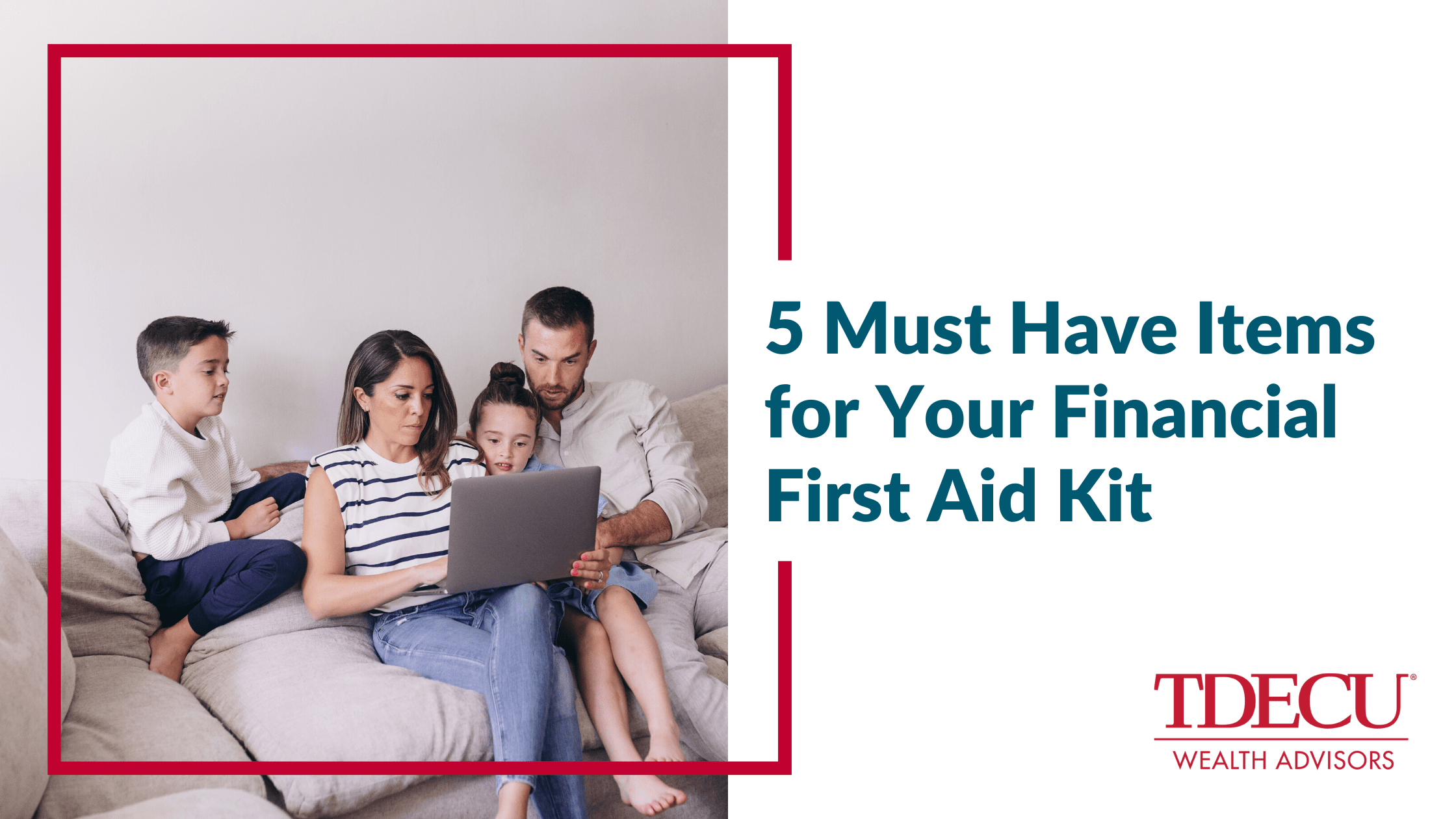Every year, around 3 million Americans are required to evacuate their homes due to a natural disaster.1 What's more, this figure does not include the millions of other individuals who are temporarily displaced as a result of fire, flood, or other damage to their homes.
Do you have the documents you need if you find yourself required to vacate your residence suddenly? Do you know how to get in touch with your financial providers? Do you know how to get a new driver's license? Do you have a way to access lines of credit? These and other questions may be answered by having a financial first-aid kit to use during an emergency.
Here are five items you want to keep in a safe place as your financial first-aid kit.
Contact Information for Financial Service Providers
In a disaster, you may not have reliable internet access, which might make it tough to track down contact information for your bank, homeowner's or renter's insurance company, credit card companies, and other lenders. Without a way to easily get in touch with these providers, especially lenders, you may not be able to make your scheduled payments—putting you at risk of financial harm.
Keep an updated list of contact information (including phone numbers and websites) for the financial service providers you interact with regularly.
Originals (and Copies) of Identification
Having your driver's license, passport, Social Security card, and birth certificate (even copies) in one spot is useful if you are required to prove your identity. Some disasters may require you to evacuate for months. If you need to apply for government aid, like FEMA, you need some way to show that you are who you say you are.
Current Insurance Policy Information
Having insurance information handy is invaluable if you need to make a claim—from damage to your home or auto after a natural disaster to hotel costs associated with an evacuation. By having your insurance company's contact information and copies of your policies handy, you are able to answer questions and assess your insurance coverage.
Property Ownership Records
Having your insurance information and property ownership records may make disaster claims easier for homeowners. Instead of relying on a government agency (which may also be in the natural disaster zone) to confirm ownership, you should be able to prove it yourself.
Inventory and Appraisal Records for Personal Property
If you have valuable personal property, it is a good idea to have this property itemized on a document in digital and printed format. This itemization may be as simple as a hand-written list of personal property or a series of photos; you could also create a video inventory by walking through your home, naming and pointing out certain items. Having this information on hand might make it easier to prove damages in an insurance claim and help get the appropriate value for your lost or damaged items.
Important Disclosures:
The opinions voiced in this material are for general information only and are not intended to provide specific advice or recommendations for any individual.
All information is believed to be from reliable sources; however, LPL Financial makes no representation as to its completeness or accuracy.
This article was prepared by WriterAccess.
LPL Tracking #1-05374523
Footnotes
1 Disasters Displaced More Than 3 Million Americans in 2022
https://www.scientificamerican.com/article/disasters-displaced-more-than-3-million-americans-in-2022/
